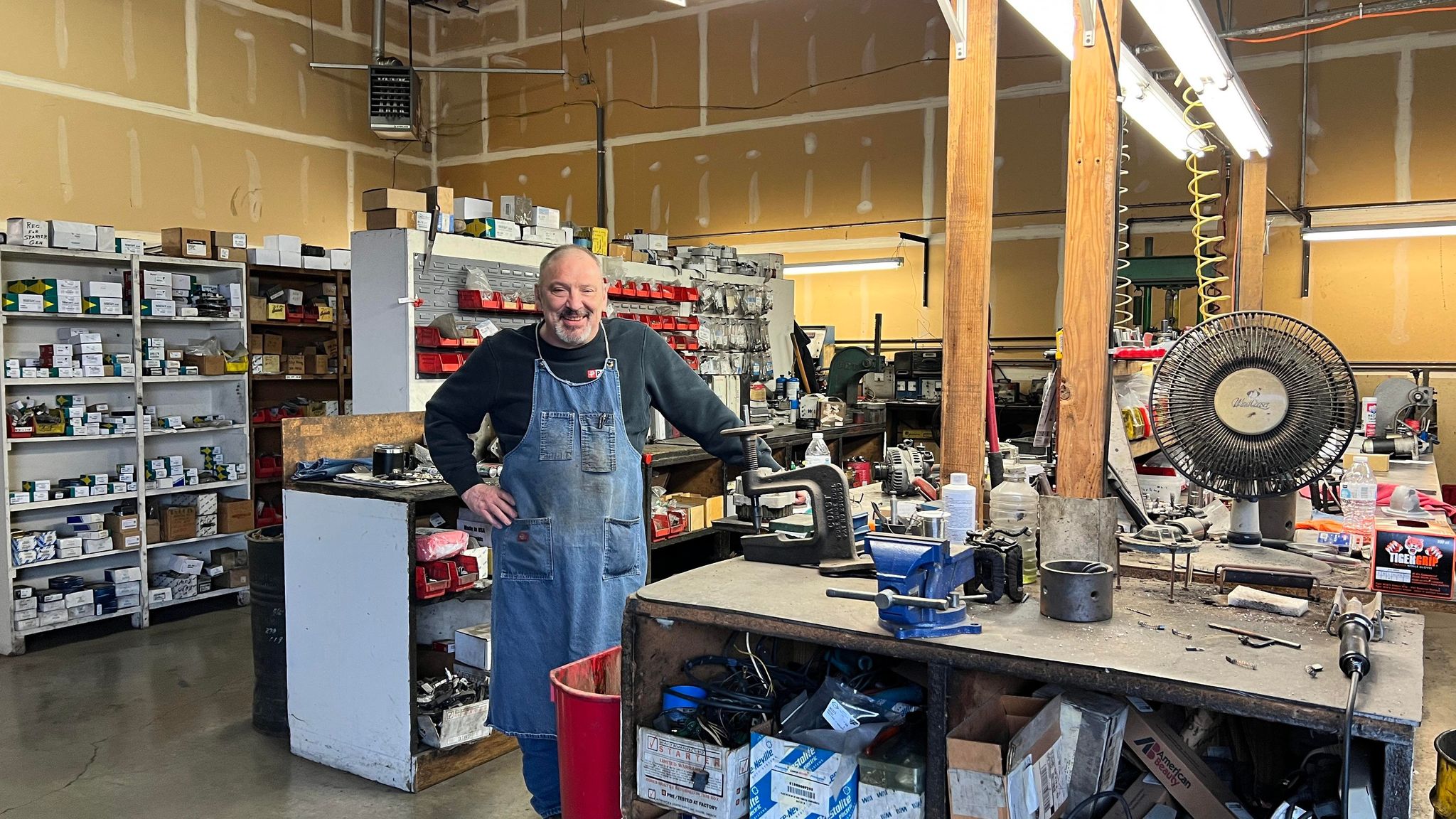Alternator And Starter Repair Shop Near Me

Finding a reliable alternator and starter repair shop near you can be crucial for keeping your vehicle running smoothly. These components, while seemingly simple, are vital for starting and maintaining the operation of your internal combustion engine. When they fail, you're often left stranded. This article delves into what to look for in a quality repair shop, common issues with alternators and starters, and how to diagnose problems before seeking professional help.
Understanding Alternators and Starters
Let's start with the basics. The starter is an electric motor that cranks the engine to initiate combustion. It draws significant current from the battery for a short period. When you turn the key, the starter engages with the flywheel (or flexplate in automatic transmissions) to rotate the crankshaft. A faulty starter might manifest as a clicking sound when trying to start the car, slow engine cranking, or complete silence.
The alternator, on the other hand, is a generator that recharges the battery while the engine is running and provides power to the electrical system. It's driven by a belt connected to the engine's crankshaft. Common symptoms of a failing alternator include dimming headlights, a dead battery after a short drive, a warning light on the dashboard (often a battery symbol), and unusual noises like whining or grinding.
Finding a Reputable Repair Shop
Searching for "alternator and starter repair shop near me" will undoubtedly yield a list of options. But how do you choose the right one? Here's what to consider:
- Reputation and Reviews: Look for online reviews on platforms like Google, Yelp, and automotive forums. Pay attention to recurring themes – are customers consistently praising the shop's honesty, expertise, and quality of work? Negative reviews should be scrutinized, but remember that everyone has an occasional bad experience.
- Technician Expertise: Does the shop employ technicians certified by organizations like ASE (Automotive Service Excellence)? ASE certification indicates that technicians have passed rigorous exams and demonstrated competence in their field. Inquire about their experience with alternators and starters, specifically.
- Diagnostic Capabilities: A good shop should have the necessary diagnostic tools to accurately pinpoint the problem. This includes voltage testers, ammeters, and specialized equipment for testing alternators and starters on and off the vehicle. Modern vehicles require sophisticated diagnostic tools to interface with the car's computer system.
- Warranty: A reputable shop will stand behind its work with a warranty on parts and labor. This provides peace of mind and protects you from potential issues down the road. Don't hesitate to ask about the warranty terms and conditions.
- Price Transparency: Get a detailed estimate before authorizing any repairs. The estimate should include a breakdown of parts costs, labor charges, and any applicable taxes. Be wary of shops that are unwilling to provide an estimate or that offer prices that seem too good to be true.
DIY Diagnosis (Before Seeking Professional Help)
Before rushing to a repair shop, you can perform some basic troubleshooting. For example, if you suspect a dead battery, you can use a multimeter to check its voltage. A fully charged battery should read around 12.6 volts. If the voltage is significantly lower, the battery may be the culprit, or the alternator may not be charging it properly. Another simple test is to visually inspect the alternator belt for cracks or damage. A worn belt can slip, preventing the alternator from spinning at the correct speed.
However, remember that working on electrical systems can be dangerous. If you're not comfortable working with electricity or don't have the necessary tools, it's best to leave the diagnosis and repair to a professional. Incorrectly diagnosing the problem can lead to unnecessary repairs and wasted money. Furthermore, on modern vehicles, improper handling of electrical components can damage sensitive electronic control units (ECUs).
Common Alternator and Starter Issues
Beyond complete failure, alternators and starters can suffer from various problems. Alternator issues might include worn brushes (the components that make contact with the slip rings), a faulty voltage regulator (which controls the alternator's output), or a damaged diode rectifier (which converts AC to DC). Starter problems can include a worn solenoid (which engages the starter motor), damaged gears in the reduction drive, or a faulty armature.
In some cases, rebuilding an alternator or starter can be a cost-effective alternative to replacing it with a new unit. A skilled technician can replace the worn components and restore the unit to like-new condition. However, this is not always the best option, especially if the unit is heavily damaged or if new replacement units are readily available at a reasonable price.
Conclusion
A failing alternator or starter can disrupt your life and leave you stranded. By understanding the function of these components, knowing what to look for in a reputable repair shop ("alternator and starter repair shop near me"), and performing some basic troubleshooting, you can ensure that your vehicle stays on the road and that you receive fair and honest service when repairs are needed.
